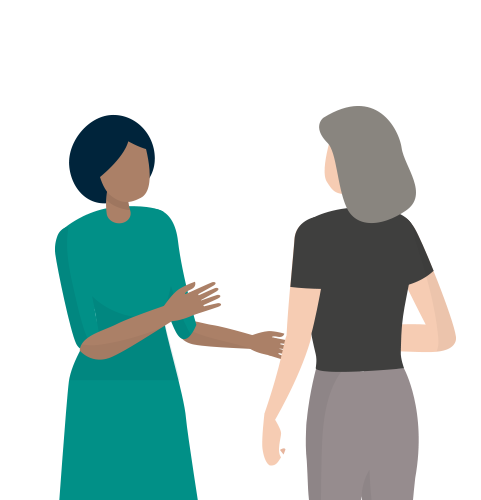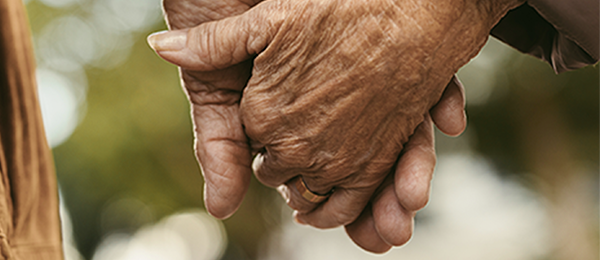Talking About Your Condition
Speaking openly about your condition can be a challenge, but it may help you establish trust and gain the emotional and practical support you need to live well on dialysis.

Talking about your condition can ease the difficulty of adjusting to life with chronic kidney disease (CKD).
Starting conversations with the people you love about the new realities you’re facing may be challenging, but worth the effort. Their help and support will be invaluable throughout your treatment journey and sharing with them early and often will ensure that you have every opportunity to discuss their thoughts, concerns, needs and expectations.

Your Spouse, Partner or Significant Other
If you have a spouse, partner, or significant other, you may prefer that they are your main source of emotional support throughout your treatment journey. This is especially the case if they’re your main carer or support system during your dialysis treatment. It is important that you discuss with him or her how your treatments will affect the daily life for both of you and make a plan for how to cope with shifting roles and expectations in your household.

Your Family
At some point in your treatment journey, you may want to tell your family about your condition. Being open about your condition with those closest to you may help them understand what you are going through.
Your family can also be a strong support network. For example, they may be able to take you to and from treatments. If you are on PD or home HD therapy, they may support you by helping you with your treatment. Otherwise, they may be willing to help you fulfil personal or family duties, like household errands or caring for small children.

Your Friends
Your social activities might be affected depending on your treatment choice. But this doesn’t mean an end to your social life as you know it. Communicate to your friends that you can still participate in the activities you loved before your diagnosis – although you should double-check this with your clinician – and that it’s important to you that they continue to include you, when possible. They will likely be open to exploring some new activities that you can do together. If you choose to explore in-centre haemodialysis (In-Centre HD), you may even make some new friends during therapy!

Your Employer and Co-workers
You may still be able to work while on dialysis. And it might be important that you do so for your physical, mental and financial health. If you need to adjust your work schedule to align with your treatments, it may be beneficial to be open and honest with them about your condition.

Treating Chronic Kidney Disease (CKD) on Your Own
If embarking on your treatment journey alone makes the most sense for you, know that you can go to your healthcare team for advice and resources that will help make life on dialysis easier. They should be able to advise you on how to get the most out of treatment and how to balance treatment with your professional and personal responsibilities or direct you to someone who can. Maintaining an open dialogue with your healthcare team about your condition is a great way to take advantage of the helpful support network they can provide.
Where to go next?

Intimacy
It is possible for you to maintain intimate relationships while you’re on dialysis. Learn more about intimacy and dialysis.

Exercise and Dialysis
Exercising regularly while you’re on dialysis can help you feel physically and mentally strong. Learn more about ways you can stay active throughout your treatment journey.

Traveling on Dialysis
It may be possible for you to travel while you’re on dialysis. Learn more about with chronic kidney disease (CKD).